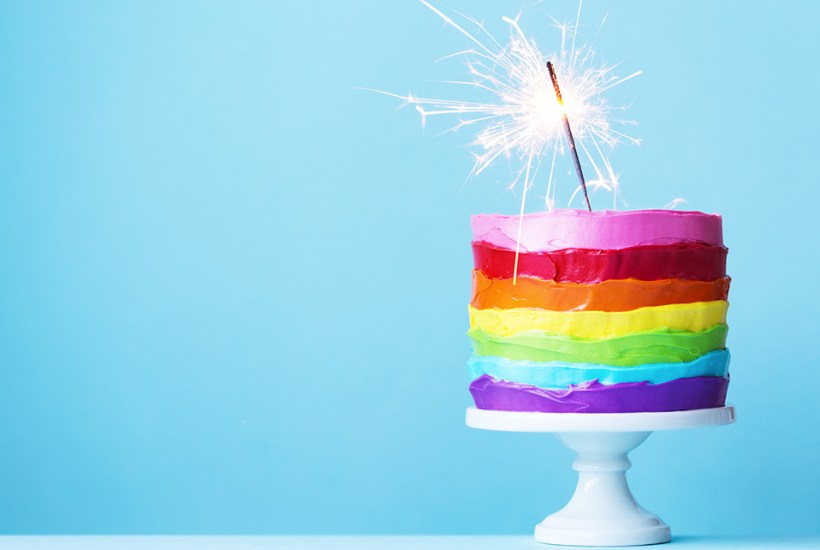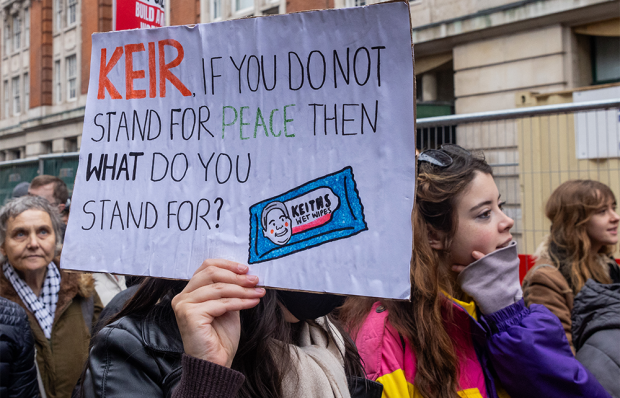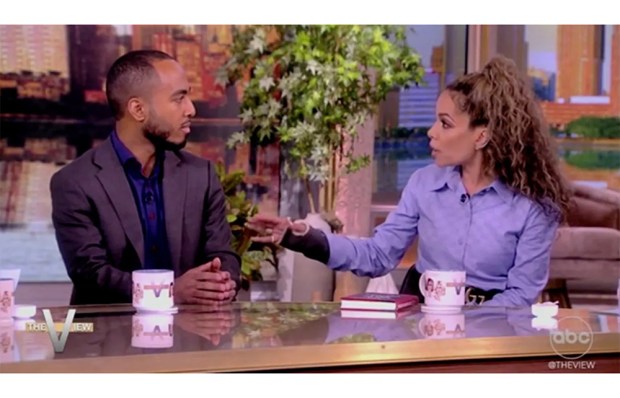It was announced last week that another gender has been added to the list: nominalgender. Most news sites reported this in the sort of proud way a zoo might announce the birth of an exciting animal, a baby Komodo dragon maybe – as if the gender had somehow hatched and was waiting to be adopted. You are nominalgender ‘if your gender is so much just you that no one else can even experience it’, I read.
A gender no one else can experience? That sounds almost appealing. I might be tempted to come out as nominalgender right here and now if it weren’t for the nasty nominal flag (a black splat on mottled pink) and the fact that the whole idea that you can ‘come out’ as a gender (as opposed to a sexuality) is destroying the minds of Generation Z.
Every day the list of possible gender options grows – metastasizes is a better word: non-binary, genderfluid, bigender, demigender, catgender. On Monday it was reported that a drag queen on the Isle of Man had informed Year 7 pupils that there are exactly 73 genders. When one brave child insisted that there were only two, the drag queen allegedly responded ‘You’ve upset me’ and sent the child out.
What the drag queen might have said, if the rude child hadn’t interrupted, is that though it’s an article of trans faith that there are 73 genders, it’s also often said that the fastest-growing gender subset is xenogender. You’re xenogender if you feel more akin to animals or plants or foods than humans. It’s funny, but it’s also frightening. There’s a girl on TikTok who explains very seriously that her gender is bird – a cardinal specifically, ey/em pronouns. And several people I’ve found identify as cake. Cake is actually just one of a smorgasbord of available gastro-genders. There is some disagreement in the community about how it feels to be cake, but in general I gather it’s a sort of sweet, fluffy feeling; a lightness. No one who’s cake-gender can have tasted a cake I’ve baked.
What does it mean to ‘come out’ as a bird? What does it mean, for that matter, to ‘come out’ as non-binary, or even trans? Isn’t it an insult to gay men and women for the language of gay rights to be hijacked by children who think they’re cake? It’s dangerous too. The phrase implies that you’ve searched your soul and discovered something true about yourself, and that coming out will set you free. But the reality is the opposite. The phrase ‘coming out’ acts like a trap, a lobster pot. In crawl the children, cheered on by their rainbow friends, but the way out is much harder to find. Who wants to admit they were wrong to come out?
My progressive friends will tell me I’m taking it all too seriously, that identifying as a cat is just playful fun. They like to cite the widespread reporting of a piece of nonsense clickbait about cat-gender pupils in America requiring litter trays in schools. But just because there’s fake news doesn’t mean there’s not true news too. A friend in the education world has told me he knows of several British schools in which children are identifying as animals. There’s a horse child who’s taken out by staff for gallops; a boy dinosaur who is fed on strips of meat.
I’ve looked into the eyes of that cardinal bird, and she wouldn’t thank you for suggesting that her identity is a joke. It’s not that she believes she has feathers or can fly, but she does think she’s discovered her true inner being. ‘I didn’t decide this. My brain decided for me.’ The cardinal bird kid experiences dysphoria. Around the mouth area in particular, she says, because of course birds have a beak.
It’s not joie de vivre that leads a teacher to affirm a child’s non-binary identity. None of this is a joke. Most adults playing the gender game are governed by fear. There’s the fear of children becoming suicidal if confronted, and fear of not following official guidance. How can we expect teachers to restore sanity when every authority they turn to advises them to affirm?
The NHS refers medical professionals who want guidance on gender identity to a website which states: ‘Non-binary communities are incredibly diverse. Non-binary people may identify as both male and female or neither male nor female… some examples of terms commonly used by non-binary people include genderqueer, neutrosis, agenda, gender-fluid, bigender and third gender.’ This is the NHS’s advice to its own staff. It puts paid to the old jokes, doesn’t it? ‘Doctor,doctor, I think I’m a cake.’ ‘Well… yes.’
Where else might a responsible teacher turn, seeking guidance about a xenogender child? What about Britain’s leading children’s charity, the NSPCC, the only UK children’s charity to have statutory powers? After a while poking around its website, I discovered this: ‘Gender identity is a way to describe how someone feels about their gender. For example some people may identify as a girl or boy, while others may find neither of these terms feel right for them, and identify as neither or somewhere in the middle. Although people often confuse them, gender identity is different from someone’s biological sex or from their sexuality… Gender identity is a personal feeling, and a child or young person will be the best person to know what matches how they feel.’ The child knows best. The NSPCC is very clear. Now get a hay net for that horse.
One thin ray of light this week. After parents complained about the 73 genders comment, the Isle of Man government suspended PSHE (personal, social, health and economic) teaching across its schools pending a reviews. ‘I applaud the authorities in the Isle of Man for making this decision,’ said the Tory MP Miriam Cates, ‘but similar– and worse – materials are being used in schools across the UK, and the Department for Education has persistently ignored whistleblowers who raise concerns.’
Got something to add? Join the discussion and comment below.
Get 10 issues for just $10
Subscribe to The Spectator Australia today for the next 10 magazine issues, plus full online access, for just $10.
You might disagree with half of it, but you’ll enjoy reading all of it. Try your first month for free, then just $2 a week for the remainder of your first year.















Comments
Don't miss out
Join the conversation with other Spectator Australia readers. Subscribe to leave a comment.
SUBSCRIBEAlready a subscriber? Log in